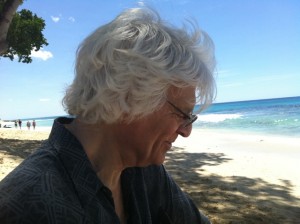Labor Day’s over. The new season starts. And, after vacation, this is when I’ve always restarted my blog.
But this year there’s more. Not just a restart. This year it’s a relaunch, not just of the blog, but of everything I do  online. And much that I’ll do in the physical world.
online. And much that I’ll do in the physical world.
To start with, the blog has a new look, thanks to new software, courtesy (and what happy timing) of my ArtsJournal hosts. A big improvement, I think, and not just in looks. The blog should now be more flexible, which I’ll hope brings me closer to all of you.
And — big news — I’m relaunching my book, Rebirth: The Future of Classical Music. Which (as my most loyal readers know) I’ve unveiled here for years, but never in ways I was happy with. Now it’s taking its final form, very likely as a series of ebooks. I’ll bring you the start of the first one right here, later this week.
It’s a book full of hope, as I wrote on the right of the blog. It’s designed to help all of us, as we all work together, and classical music is happily, vividly, strongly reborn.
The rest? I’ll unveil it in bits, as the fall moves on. Though there’s one thing I want to say now. The blog will have themes. They’ll be keyed both to my book, and to work I’ll be doing outside of the blog. The first of them — my September theme — will be where I think classical music stands right now. And how its future is taking shape.
October’s theme? Commerce. Which I think classical music needs more of. Some of you — my faithful critics — may think that means I’ve sold out, that I want classical music to sell itself cheaply, to the widest possible — low-class — market.
But that’s not what I mean at all. I mean that we should decide who we are — all of us, as musicians, as composers, ensembles, and as the entire classical music field. And then we should go out looking for people who’ll like us. Or, in conventional terms, for our audience. Our fans. Our supporters. The people who’ll love us.
And then we should work to find more of them. If you record a CD, and sell 50 copies, why not 100? Why not 200? Why be satisfied with what you have now, with what your manager thinks you can get, what the people who book you for concerts think they can get? Find your own audience!
And do it in the spirit Seth Godin so simply outlines, in his inspiring new book Graceful:
Make something worth making.
Sell something worth talking about.
Believe in what you do because you may have to do it for a long time before it catches on.
Don’t listen to the first people who give you feedback.
Don’t give up.
(Godin ends by adding, “Not for a while, anyway.” Which is a sensible caveat. But I hope he’ll forgive me for cutting those last words off, to end with more hope and more power. Just don’t be unreasonable!)

You are always enlightening and informative. I love the new look and the issues you will bring to the table. It has taken time, and we still have a very long way to go, but the topics you bring up would never have passed the lips of anyone in our industry years ago. Much of the future of classical and contemporary classical rests in the hands of the creators and re-creators taking their lives into their own hands–when appropriate–and bringing themselves closer to their audiences and colleagues. Bravo, Greg!
You’re on the right track considering commerce — anyone who wants to make a living in music, whether as a sole practitioner or as a member of an ensemble needs to realize that being able to continue the work long enough to be worthwhile also means finding that market, which seems to have become so elusive. Seth Godin is a terrific guide for those ideas. On a similar line of thought, I just read about the increasing number of medical schools (up from 5 to 65 in the last couple of decades) that offer a joint MD/MBA degree, because practicing medicine is a business, too.